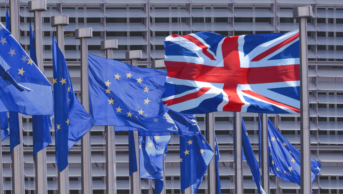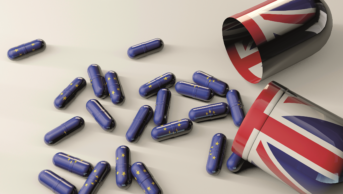
Shutterstock.com
Pharmacists need not dispense prescriptions issued in another European country in the event of a ‘no-deal’ Brexit, the General Pharmaceutical Council (GPhC) has argued.
In its response to the Medicines and Healthcare products Regulatory Agency (MHRA) consultation on Brexit contingency plans, submitted in 1 November 2018, the GPhC said it did not agree with the MHRA’s proposal “to enable continued recognition of prescriptions issued in an EU/EEA [European Economic Area] country”.
Instead, the GPhC argued that recognising prescriptions from the EEA could put patient safety at risk as the practitioners writing the prescriptions may no longer be qualified to do so in the UK after a no-deal Brexit.
Under current legislation, EU prescriptions can be dispensed in the UK under the EU cross-border healthcare directive.
The GPhC’s consultation response said: “It is anticipated that this directive will cease to apply to the UK in the case of no deal.
“In view of this we do not agree that provision needs to be made to continue the recognition of EEA prescriptions.”
It added that a no-deal Brexit could end the mutual recognition of medical qualifications between EEA countries, and the GPhC said further legislation “should not be drafted to permit the continued recognition of EEA prescriptions for dispensing here if the EEA qualified prescribers themselves would no longer be recognised as meeting the professional qualification requirements for registration in the UK”.
The consultation response also warned that online prescribing services “have developed because of the legislative provisions on recognition of electronic EEA prescriptions” despite falling “outside the UK regulatory remit of the General Medical Council, Care Quality Commission and the other devolved regulators”.
The GPhC response said: “Continuing the recognition of electronic EEA prescriptions when the cross-border healthcare directive no longer applies fails to ensure patient safety in the digital healthcare environment and poses significant risks to patient safety.”
However, the regulator clarified that in an emergency and “in the absense of a prescription”, pharmacists should continue to be able to “supply a patient with medicinal products if the pharmacist is satisfied that the medicinal products had been previously prescribed for the patient by a ‘relevant prescriber’”.
It said: “In these limited situations the definition of ‘a relevant prescriber’ would need to include an EEA health professional.”
A spokesperson for the National Pharmacy Association disagreed with the GPhC, saying they “agree with the MHRA proposal to enable continued recognition of prescriptions issued in an EU country”.
They added: ”However, concerns that arise with the dispensing of prescriptions such as the different legal requirements, the validity of the prescriber, and the need to identify what the generic and/or UK brand is, need to be addressed first.”
The GPhC was unable to comment on whether UK prescriptions would be recognised in EU countries after a no-deal Brexit.


